The strange becoming familiar
How we quickly adapt to unfamiliar service models
I spend a lot of time in London and Manchester at the moment. Over the past few months I’ve started to notice the trend of new bike rental services — like Mobike.
I was in Manchester again last month and was reminded just how familiar it now feels to find these orange-tinted bicycles all over the city.
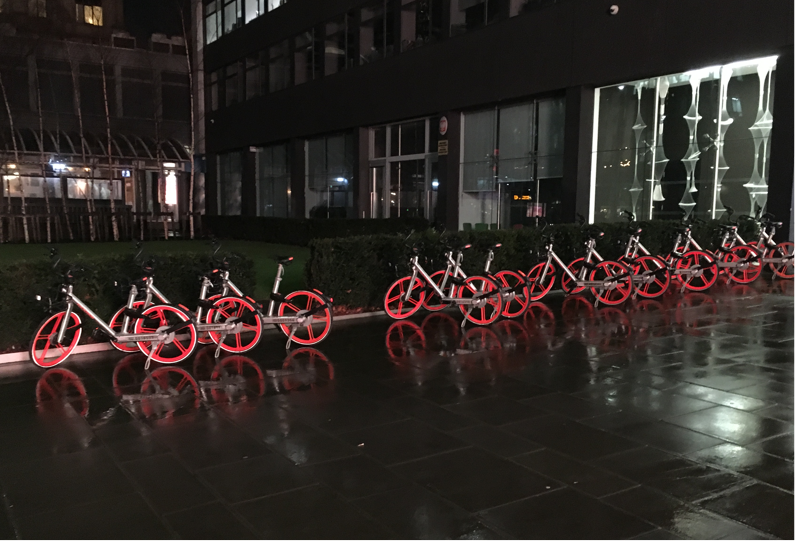
To start with these new bike share schemes felt strange. They raised questions in my head like will there be enough bikes, where will they be, and what state will they be in? It’s worth saying at this point that these are all valid questions. It’s well reported that services like Mobike initially struggled in places like Manchester as this Guardian article explained when they reported that people don’t know how to share.
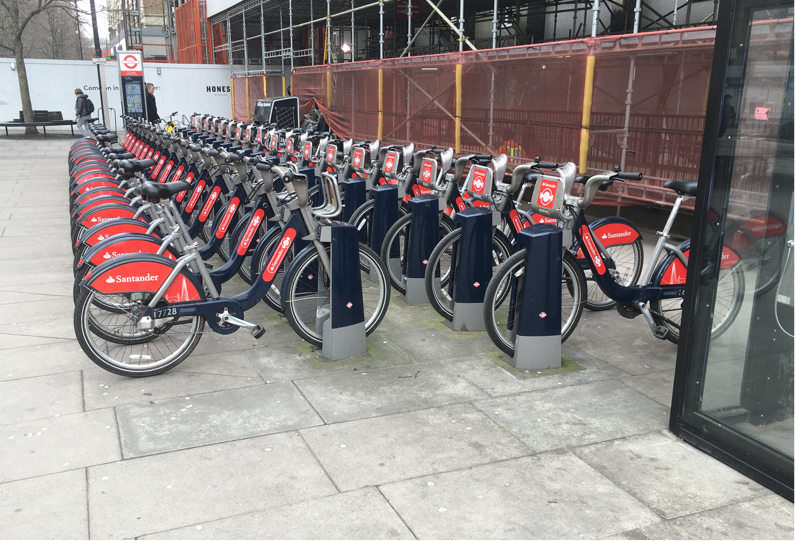
In London, especially, I’m familiar with the idea of bikes you can access from docking stations — they used to be widely referred to as “Boris bikes†when they were introduced under the previous London mayor. They’re now officially known as Santander Cycles thanks to the latest round of corporate sponsorship for the scheme.
I grew up in London at a time where not locking up a bicycle would mean it wouldn’t be there when you came back. In fact, most of my life I’ve lived with the mental model that you lock down or keep a careful watch over your processions in public or you lose them.
The idea of sharing economies and new types of service models are starting to change some of my perceptions and expectations. Freestanding bikes and bike-share schemes, even with a smartphone app to ‘unlock’ them, take some getting used to but are becoming increasingly normal, or familiar.
As an aside, a society where we don’t have to lock everything down feels like a small measure of progress to me.
Familiarity and adoption in service design
I’m familiar with the concept of owning a bike. What it means to have store a bike and maintain it. Also, the types of costs and time involved in purchasing and owning a bicycle. And, more recently I’ve got used to seeing shared bike schemes with docking stations in city centres.
Familiarity is an important barrier to adoption in service design. Whether we’re thinking about radically different uses of technology that shape service models, and/or mental models for the way we expect things to work.
What first appears strange can quickly become a familiar part of our everyday lives. What continues to surprise me is just how fast this transition happens, especially with new types of services using emerging technologies, and how quickly my own expectations of services are changing.
In this example, the idea of fixed docking stations for bicycles already feels outdated.
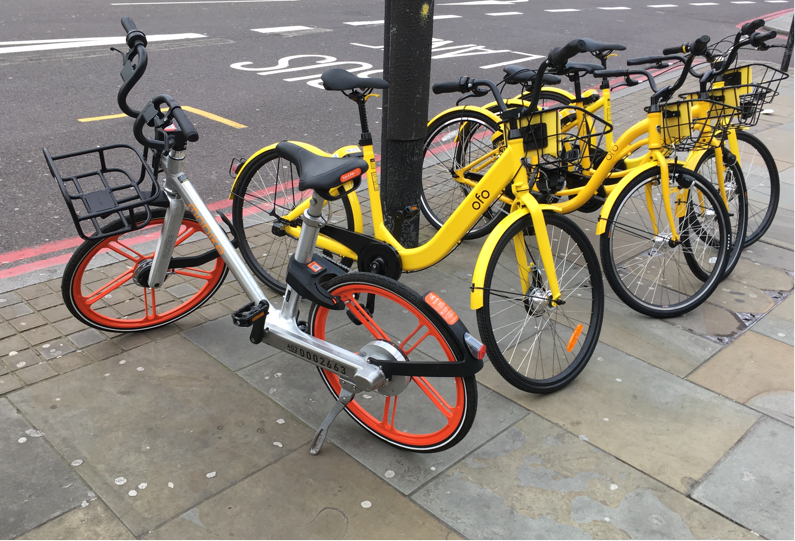
I’ve stumbled across other bike-share schemes while I’ve been thinking about this. For example, this ‘Bike & Go’ scheme at Wigan Wallgate station that appeared to be completely unused, and more difficult to set up and access than its new competitors.
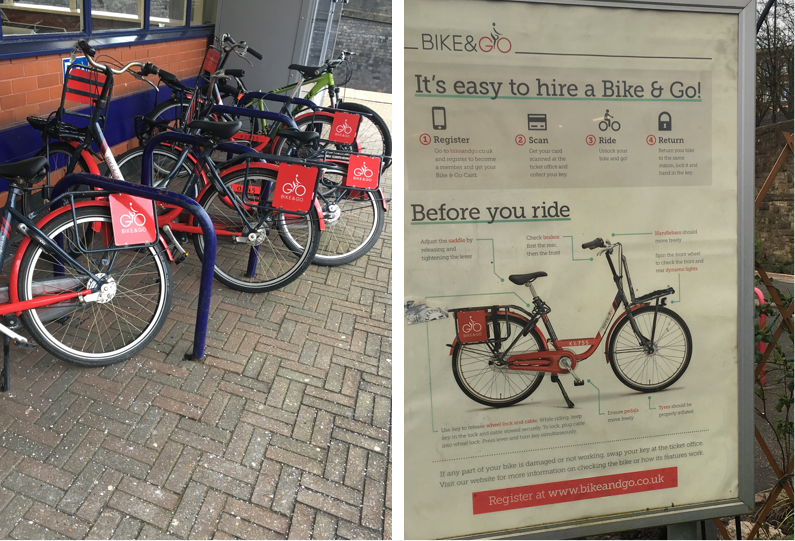
In big cities around the world, brands like Mobike and Ofo are becoming increasingly familiar — they were one of the first things I noticed when I visited Milan last month — right there, alongside the official and more outdated looking docking stations for the official city bike share scheme.
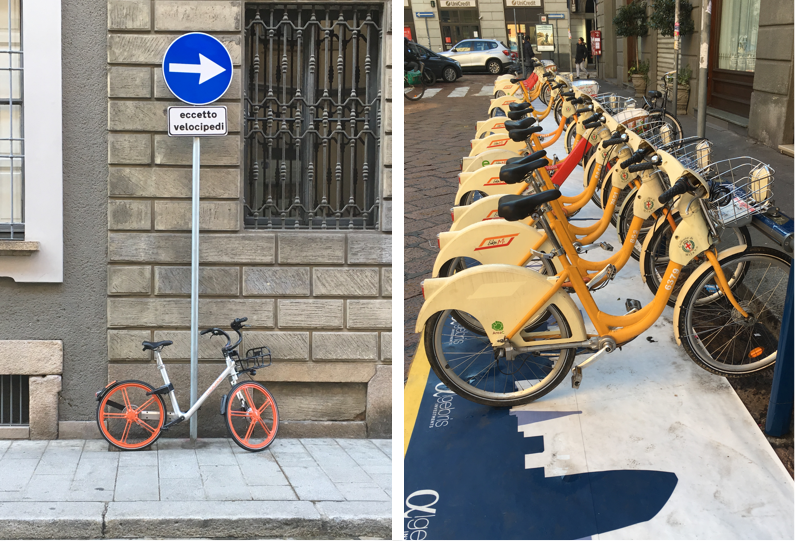
Ideas that push things forward
What can we conclude from this?
As designers, I often think that the ideas we put forward rely too much on familiarity rather than focusing on what might be possible. We can spend too much time looking at existing services and business models, rather than recognising the ability society has, and even the necessity, for quickly adapting to unfamiliar service models. In my mind, this is the potential to unlock value in new ways through types of services that will continue to meet individual needs and changing expectations.
When your ideas feel too far removed from reality this is sometimes unfamiliarity, and people are capable of catching up. Especially when you’re willing to provide an alternative to the perception of how things have to work.
The strange is always becoming familiar.
This blog post is also published on Medium.
This is my blog where I’ve been writing for 18 years. You can follow all of my posts by subscribing to this RSS feed. You can also find me on Bluesky, less frequently now on X (formally Twitter), and on LinkedIn.